Interview with Trump Admin Asst. AG Jeff Clark: “I Want to See the DOJ Reformed Across the Board”
Late on Saturday, approaching midnight, I received a notification on my phone. It was a text from Jeff Clark.
“Pray for Trump first and foremost,” Clark’s message read.
I had interviewed Clark, Assistant Attorney General from 2018 to 2021, that morning on July 13th. But hours later, the news cycle dramatically changed when the nation was jolted by the horrific events in Butler, Pennsylvania. Through divine providence, God “prevented the unthinkable from happening,” as President Trump wrote.
Americans will remember where they were and what they were doing when the news broke. One of the first social media posts I saw was this one by Clark.
Clark, alongside President Trump, Dr. Navarro, Steve Bannon, and others, has experienced intense political persecution and lawfare, due to his work in the first Trump Administration and his efforts to uphold election integrity. He met with President Trump in the Oval Office on January 3rd, 2021 to discuss how to remedy well-documented election fraud in the wake of the 2020 election. During the Biden administration, his home has been raided by federal agents, and he is being forced to fight multiple cases at once in different jurisdictions, as I’ve previously written about here.
I first met Clark in 2022 at the launch event for Dr. Navarro’s book “Taking Back Trump’s America” in Washington, D.C. Since then, I’ve seen him speak twice at Trump National Golf Club in Bedminster, New Jersey, including at an event there in June. And he, Dr. Navarro, and I have brought to light outright corruption and extreme anti-Trump bias at taxpayer-funded PBS Frontline, with Clark observing that Frontline is “completely for sale.”
Clark’s father was a Teamster, and he grew up in Philadelphia’s Tacony neighborhood before graduating from Harvard University and Georgetown Law.
Steve Bannon cited Clark by name in the first interview he granted while enduring political imprisonment in Connecticut, and the Washington Post acknowledges Clark as a “rising legal star for Republicans.”
Clark left his position as a partner at Kirkland & Ellis, one of the world’s largest law firms, to serve in the first Trump Administration, and simultaneously headed, as Assistant Attorney General, two of the Justice Department’s seven divisions – the Environmental and Natural Resources Division and the Civil Division – commanding approximately 1,400 lawyers. Before age 35, during the George W. Bush administration, Clark also became Deputy Assistant Attorney General for the Justice Department’s Environment and Natural Resources Division, serving in that role from 2001 to 2005.
Days before Dr. Navarro’s release from political imprisonment, Clark provided insights across a wide range of topics, including politically motivated lawfare against Trump allies, protecting election integrity, and policies that he is looking forward to seeing implemented during a second Trump Administration. He said that he wants to see the Department of Justice “reformed across the board.” The interview has been lightly edited for clarity.
Could you share your thoughts on Dr. Navarro finally being freed from political imprisonment on July 17 and on his new book “The New MAGA Deal” to be published July 16?
I say hooray and hallelujah…he was wrongly prosecuted, wrongly convicted, and the entire January 6 Committee that led to his prosecution by referring his refusal to knuckle under to them—that was illegal—because the committee was illegal. It was not constituted properly. It violated the very rules that the Nancy Pelosi Congress at the time set up to govern Committees. And it’s a disaster all the way around.
And sadly, the Judges in DC refused to recognize that. And also, sadly, we’re not seeing this Congress under Mike Johnson move fast enough to repudiate the January 6 Committee. They’re apparently poised to file an amicus brief in support of Steve Bannon’s attempt to get released from jail, but obviously they should have taken those steps long ago, and they should have taken those steps to help Peter Navarro.
As for his book, I haven’t had the chance to read it or get an early copy, but I’m sure it’s excellent. I read his book that came out right after the Trump Administration ended. I thought it was a great book with a lot of excellent stories. You know, it dovetailed in a lot of ways with my own experience with different personalities and different issues inside the administration, and it made me wish, actually, that I had been a closer collaborator with Dr. Navarro when I was in the administration. But I think we’re all resolved to be a much tighter group if we do get the chance – because President Trump asks us to and confers that honor on us – to return to another Trump Administration.
In his first interview while enduring political imprisonment in Connecticut, Steve Bannon cited you by name, stating that lawfare has only made you and others stronger, and explained the “Next Man Up” concept. He said, “Next man up comes from that anti-fragile premise—when one leader goes down another steps up, when one person can’t fulfill their task and purpose another steps up…whatever the cause or the occasion, in any and all situations, the next person—male or female, young or old—steps into the breach—that is the foundational power of our country and our populist nationalist movement—citizens…citizens engaged and on fire for our country—NEXT MAN UP…I think you can see a real manifestation of this on War Room—10 to 20 rotating guest hosts, tons of contributors, and the audience going next level as force multipliers—the reach and power grows as more citizens get involved.” Could you talk more about the concept or philosophy of “Next Man Up?
Well, Adam, you know as well as I do that Steve Bannon is an intense intellectual. He has degrees from Virginia Tech and from the Harvard School of Business. He has the real-world experience of being at Goldman Sachs and being a film producer and being an investor in the Seinfeld show. And he is just an iconoclast and a bibliophile who inhales books. And for people who don’t recognize it, the book that he’s referencing, the anti-fragility concept, is a book [“Antifragile”] by Nassim Nicholas Taleb. And it’s a very interesting book.
Look, human institutions can be fragile. Other kinds of institutional arrangements that may not be designed in nature, but rather have just grown up over time [can be fragile]. And they have elements in different worlds, like some are financial, some are political, some are legal. So, sometimes, if you don’t watch the institutions and try to make sure that they cannot be co-opted and that if they’re hit with different forms of disaster, whether deliberate disaster, like sabotage, or whether natural disasters or the like, they can be fragile. They can crumble. And so, if you want to make good institutions or better institutions, you need to design them to be anti-fragile.
And the framers [of the Constitution] were very good at this, right? Because what is it that they thought was the key fragility opportunity for those who would sabotage the country? It was ambition. It was power. Hence, the need to divide up power. That’s why we have a system of separation of powers. That’s why we have three branches of government.
And so, what this theory of anti-fragility is about is a theory of, as we fight in the political struggle against the left and against the Marxists and against the internationalists, the globalists, we need to make sure that things are not resting too exclusively or too strongly on the shoulders of any one man, whether that’s Donald Trump, whether that’s Dr. Navarro, or whether that is Steve Bannon. It needs to be a broad-based movement where there are many individuals, much like an army where, if the first rank falls, the next rank is able to come in. So, that’s the theory.
I think that it’s the kind of meta point, you know, the overarching point that Steve Bannon makes. We’re missing [him] now that he’s in federal prison for four months. And I think that Dr. Navarro embodies that [‘Next Man Up’ concept] because, as I understand it, the day after he gets out of prison, he’s going to be at the Republican National Convention, and hopefully going to be speaking, and so they took him out of the fight for a four-month period, but they certainly haven’t taken him out of the fight permanently.
I think Steve Bannon is going to emerge stronger from this…I think President Trump has emerged stronger out of the crucible of lawfare, as well. So, I don’t want to speak to myself in terms of [embodying ‘Next Man Up’]…I was gratified by what Steve said [in his recent interview]. Look, we have a deep bench, as the rotating hosts and contributors of the War Room are showing. And so, I feel better about the movement than I have, but I do still think that the movement is too small. We need more people to get involved. We need more people to fill in the deeper ranks, the back ranks, and press forward with us.
What is the state of the 2024 election season, and the progress of the quest to win back the White House and take back Trump’s America?
The campaign is going very well for President Trump. All of the lawfare efforts seem to have either outright failed or stalled to a significant degree, and probably the biggest development on that front recently was the Supreme Court’s decision finding that President Trump was able to claim two different kinds of immunity, and that there would need to be a remand back to the district court judge, the trial judge, for her to parse official from unofficial conduct. So, President Trump’s now got a core constitutional powers set of immunity, which is absolute immunity, and then he’s got a presumptive form of immunity for anything else that he does to the outer bounds of the acts of the presidency. And third, he has the benefit of an evidentiary rule that says no evidence can come in to proceedings that involve him and, I would argue, even beyond that, [involving] other people who are parties to the communications with President Trump, if that would essentially interfere with the free operations of the Executive Branch. So, that decision is going to make it very difficult for the conviction in New York, in Manhattan to go forward against President Trump.
And even assuming the Georgia case keeps going - and at the moment it’s on ice – to look at whether Fani Willis should be disqualified, I think it’s going to make it very difficult for that case to prevail against President Trump. And then we know that Judge [Aileen] Cannon still has all kinds of questions and motions to wade through before there could ever be any kind of trial in the documents case involving Mar-a-Lago in Florida. [Update: On July 15, two days after this interview, Judge Cannon ruled that the entire documents case is thrown out. Special counsel Jack Smith said that he would appeal. Clark appeared on War Room on the morning of July 15 to discuss Judge Cannon’s decision.]
FULL INTERVIEW ATTACHED BELOW!




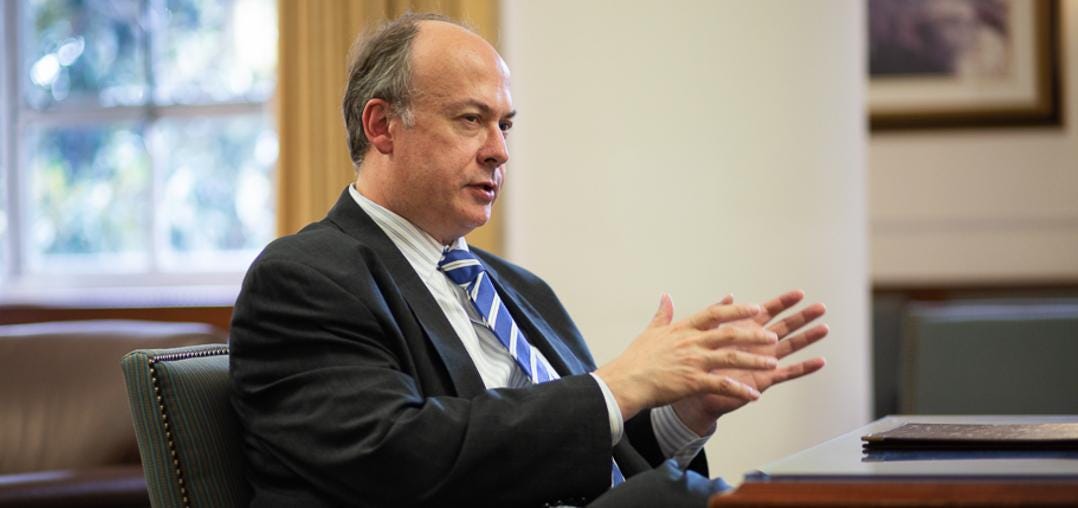
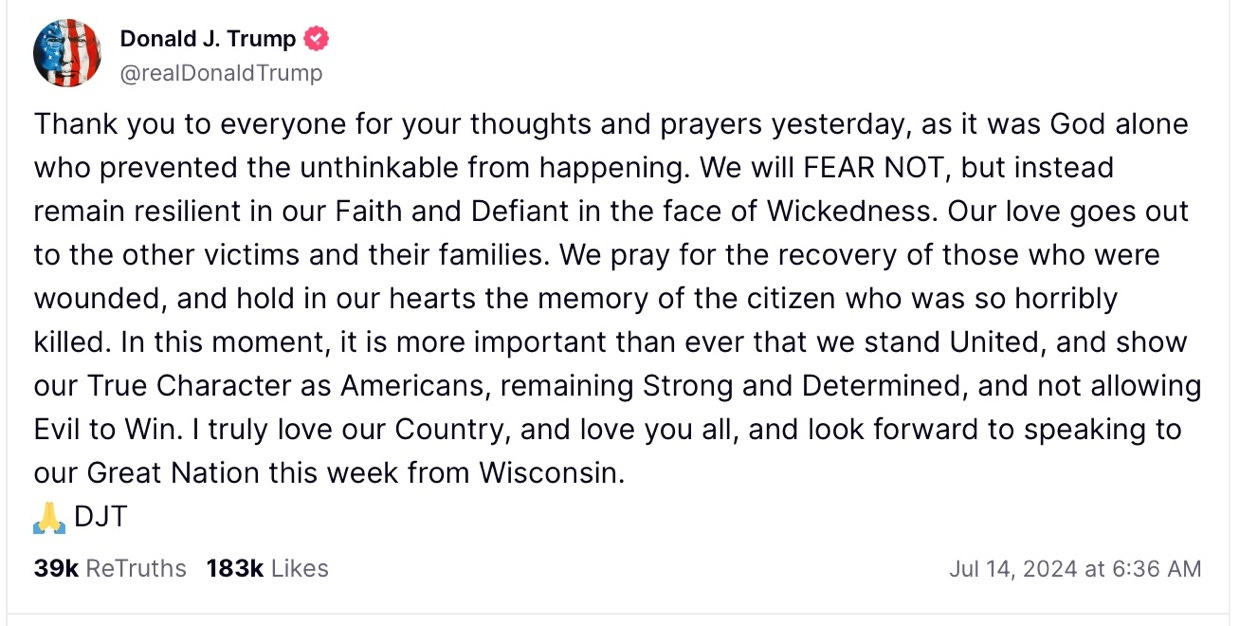
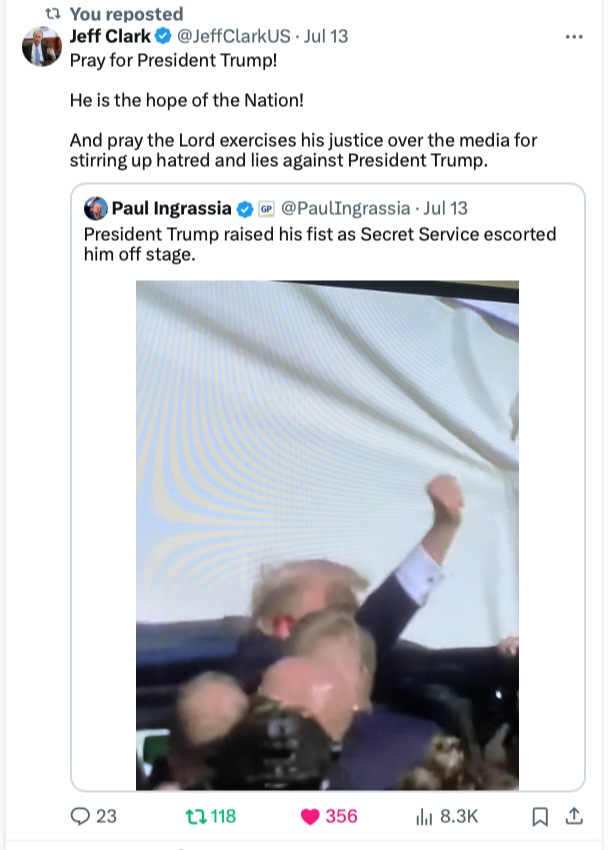
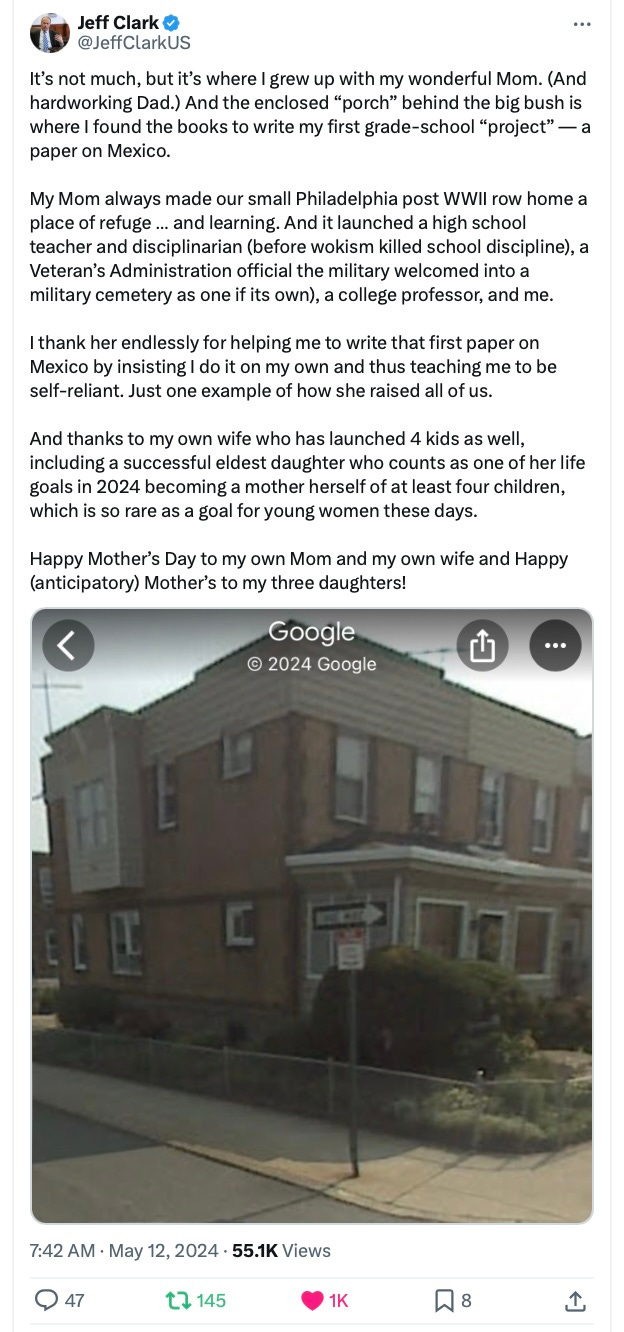
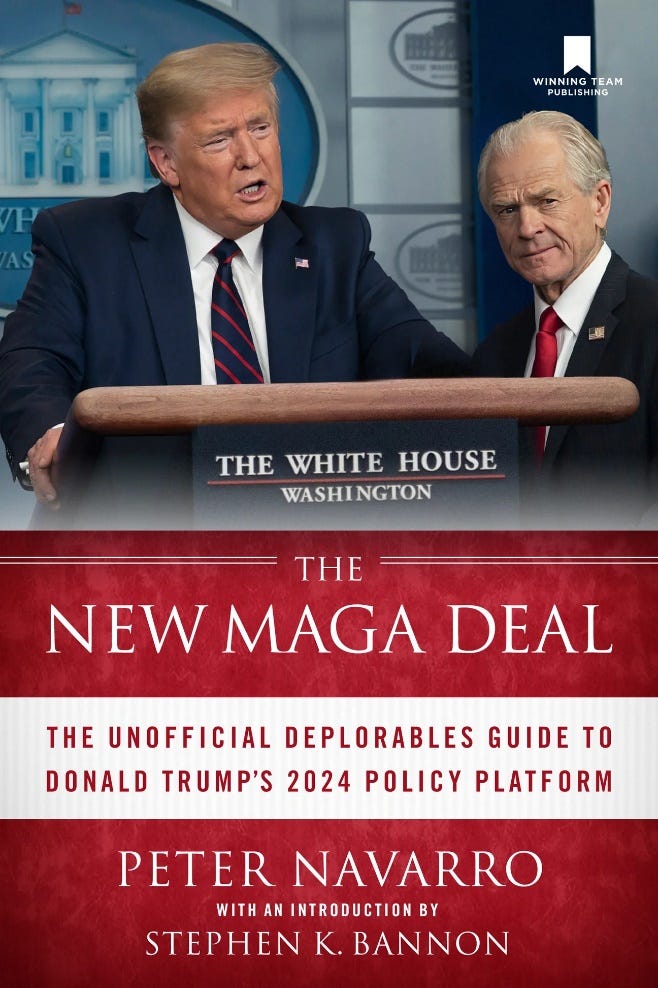
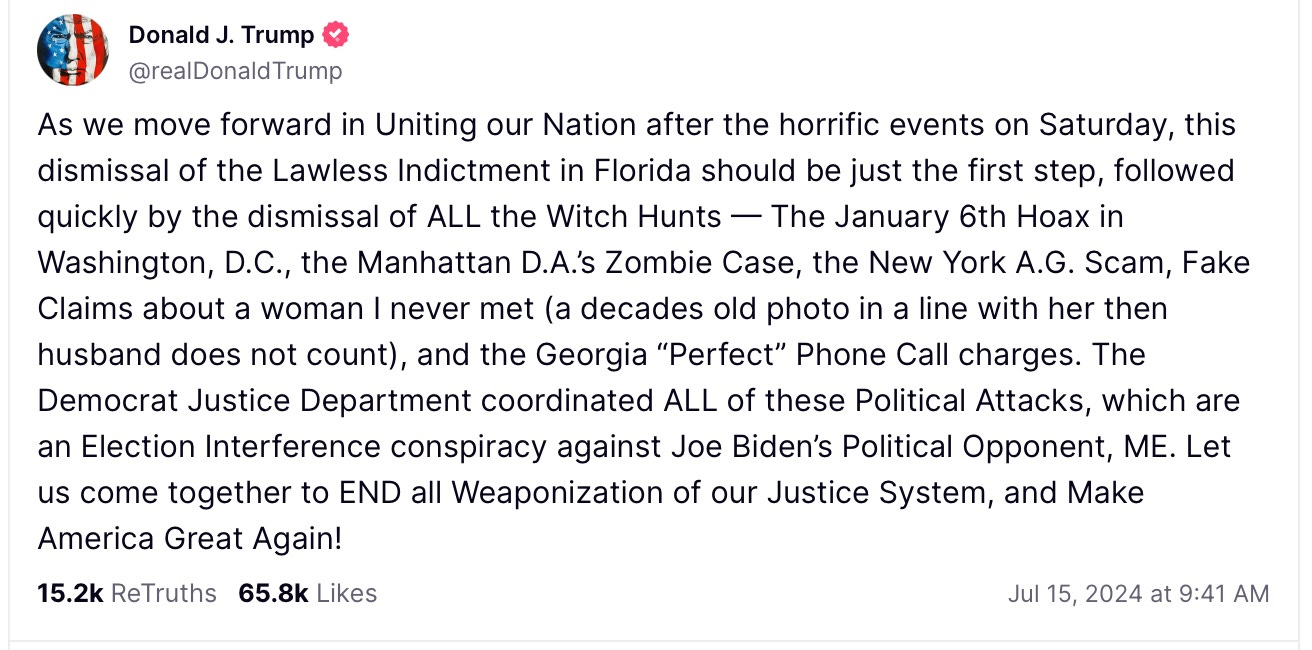

In depth report. Excellent writing and comprehensive review. God bless Peter Navarro and Steve Bannon, two martyrs for 21st century.
I just finished reading Dr. Navarro’s new book. It arrived in the mail literally one minute after Trump had been shot, as if the Universe was saying, “Here, you’re going to need this”.
I am delighted with essentially every point and policy recommendation that Navarro made. If these could be implemented, our country would turn back to Constitutionally-based greatness. We’ll need congressional support to make some of it happen, so get out there and vote for good people!